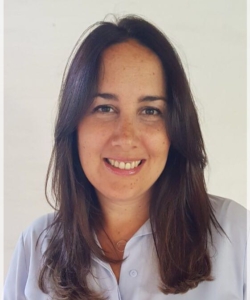HCCH Monthly Update: September 2025
Conventions & Instruments
On 18 September 2025, Argentina deposited its instrument of ratification of the 1996 Child Protection Convention. With the ratification of Argentina, the Convention now has 58 Contracting Parties. It will enter into force for Argentina on 1 January 2026.More information is available here.
Meetings & Events
On 11 and 12 September 2025, the Permanent Bureau of the HCCH hosted a Roundtable and Training on the application of the 1980 Child Abduction and 1996 Child Protection Conventions, in particular concerning the children of Ukraine. More information is available here.
From 17 to 19 September 2025, the Experts’ Group (EG) on Central Bank Digital Currencies (CBDCs) held its fourth working meeting. Pursuant to its mandate, the EG made further progress on the study of the applicable law and jurisdiction issues raised by the cross-border use and transfers of CBDCs. More information is available here.
On 25 and 26 September, the Permanent Bureau of the HCCH hosted training on the HCCH’s core family law Conventions and projects for a group of judges and court officials from 16 States. The training was organised in cooperation with the European Judicial Training Network. More information is available here.
On 26 September 2025, the second meeting of the Working Group (WG) established to finalise the Model Forms pertaining to Chapter II of the 1970 Evidence Convention was held online.
Upcoming Events
Registration is now open to the public for online participation in the “HCCH-IDLO Dialogue on Digitalisation of Public Services and Justice”. The event will be held on Friday 10 October 2025, from 10.00 to 11.30 a.m. (CEST). Interested persons should register no later than Tuesday 7?October 2025 via this registration form. More information is available here.
Vacancies
Applications are now open for the position of Legal Officer. The deadline for the submission of applications is 1 November 2025. More information is available here.
Applications are now open for the position of Finance / Human Resources Assistant. The deadline for the submission of applications is 11 October 2025. More information is available here.
These monthly updates are published by the Permanent Bureau of the Hague Conference on Private International Law (HCCH), providing an overview of the latest developments. More information and materials are available on the HCCH website.
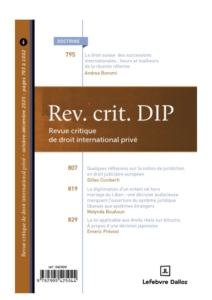

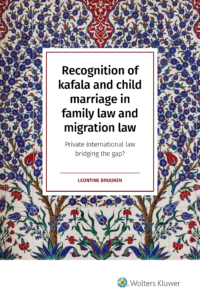
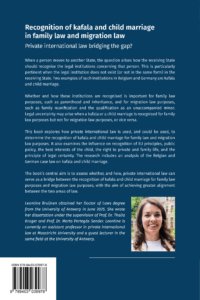
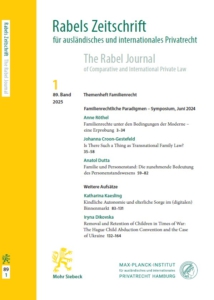 Issue 1/2025 of RabelsZ has just just been released. It contains the contributions to a family law symposium held at the Max Planck Institute in Hamburg in June 2024. All content is
Issue 1/2025 of RabelsZ has just just been released. It contains the contributions to a family law symposium held at the Max Planck Institute in Hamburg in June 2024. All content is 